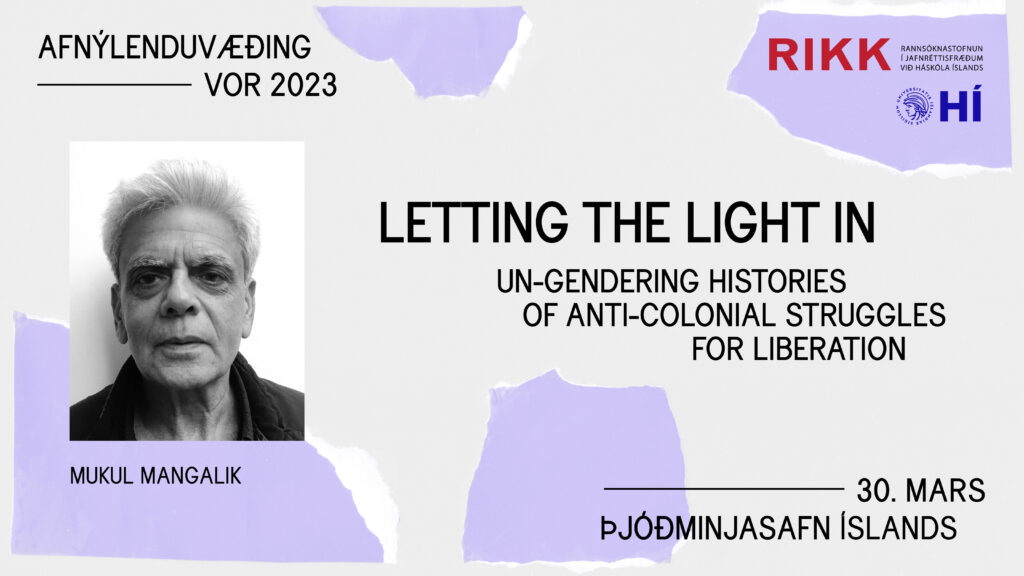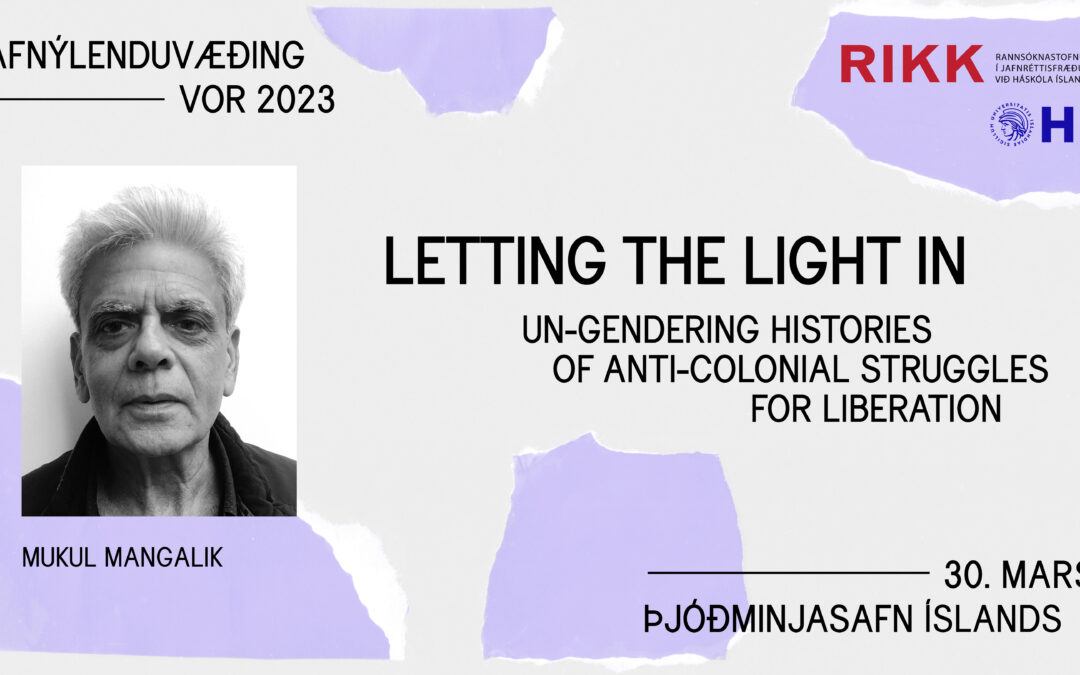
Mukul Mangalik er fimmti fyrirlesari hádegisfyrirlestraraðar RIKK – Rannsóknastofnunar í jafnréttisfræðum á vormisseri 2023 en röðin er tileinkuð afnýlenduvæðingu. Fyrirlesturinn nefnist „Letting The Light In. Un-Gendering Histories of Anti-Colonial Struggles for Liberation“ og verður haldinn kl. 12.00 fimmtudaginn 30. mars í fyrirlestrasal Þjóðminjasafns Íslands. Fyrirlesturinn verður fluttur á ensku.
Í fyrirlestrinum greinir Mukul Mangalik kynjaða orðræðu afnýlenduvæðingarfrásagna og tekur dæmi frá Rómönsku Ameríku, Afríku, og Suður- og Suðaustur-Asíu.
Ágrip á ensku má finna hér að neðan.
Mukul Mangalik starfaði sem prófessor í sagnfræði við Delhi-háskóla á Indlandi og er fyrirlesari hjá Jafnréttisskólanum (GRÓ GEST).
Frekari upplýsingar um fyrirlestraröðina má finna á heimasíðu RIKK – rikk.hi.is – og Facebook-síðu stofnunarinnar auk þess sem hægt er að skrá sig á tölvupóstlista RIKK hér. Upptaka af fyrirlestrinum verður gerð aðgengileg á heimasíðu RIKK og Youtube. Fyrirlestraröðin er haldin í samstarfi við Þjóðminjasafn Íslands.
There was a time when decolonization was understood as a transfer of power at an appropriate moment decided upon and willingly granted by paternalist colonisers to the colonized. Nationalist and early Marxist historiographies inverted the paradigm and argued, though with contesting understandings and emphases regarding both the nature of liberation movements and the meaning of independence, de-colonisation and neo-colonialism, that independence from colonial rule was wrested by national liberation struggles and movements in the face of resistance by colonial powers, which, in different measure continued to believe in the ‘illusion of permanence’ of their empires well after the end of World War II. ‘Histories from below’ or popular histories of national liberation movements shifted the focus of historical research on national liberation struggles to the active role played by ‘subalterns’ in the shaping of struggles for independence, but until fairly recently, even the best such histories remained gendered. What does this mean? When did the un-gendering of historical understandings of struggles for liberation really take off? Why did this happen and what kind of new histories with respect to de-colonisation have been produced in the wake of the new questions asked and new research undertaken? The lecture will seek to address some of these issues with examples drawn from the histories of modern Latin America, Africa, South and South-East Asia.
